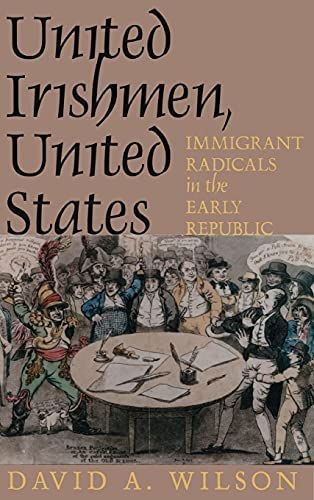
United Irishmen, United States Immigrant Radicals in the Early Republic
Among the thousands of political refugees who flooded into the United States during the late-eighteenth and early-nineteenth centuries, none had a greater impact on the early republic than the United Irishmen. They were, according to one Federalist, "the most God-provoking Democrats on this side of Hell." "Every United Irishman," insisted another, "ought to be hunted from the country, as much as a wolf or a tyger." David A. Wilson's lively book is the first to focus specifically on the experiences, attitudes, and ideas of the United Irishmen in the United States.Wilson argues that America served a powerful symbolic and psychological function for the United Irishmen as a place of wish-fulfillment, where the broken dreams of the failed Irish revolution could be realized. The United Irishmen established themselves on the radical wing of the Republican Party, and contributed to Jefferson's "second American Revolution" of 1800; John Adams counted them among the "foreigners and degraded characters" whom he blamed for his defeat.After Jefferson's victory, the United Irishmen set out to destroy the Federalists and democratize the Republicans. Some of them believed that their work was preparing the way for the millennium in America. Convinced that the example of America could ultimately inspire the movement for a democratic republic back home, they never lost sight of the struggle for Irish independence. It was the United Irishmen, writes Wilson, who originated the persistent and powerful tradition of Irish-American nationalism.